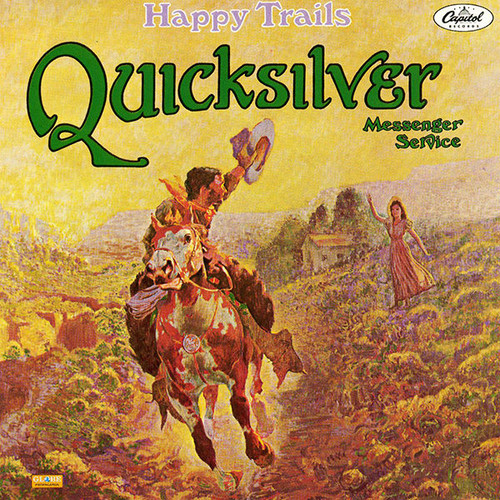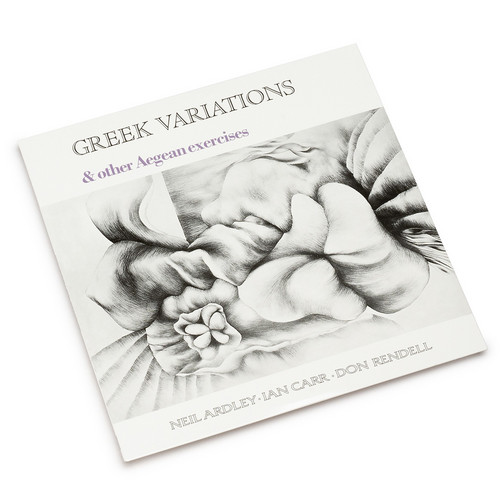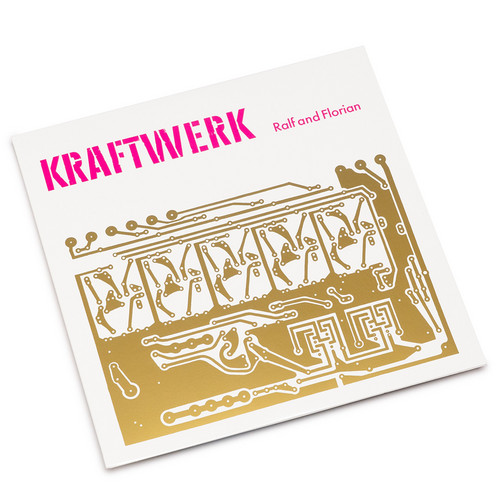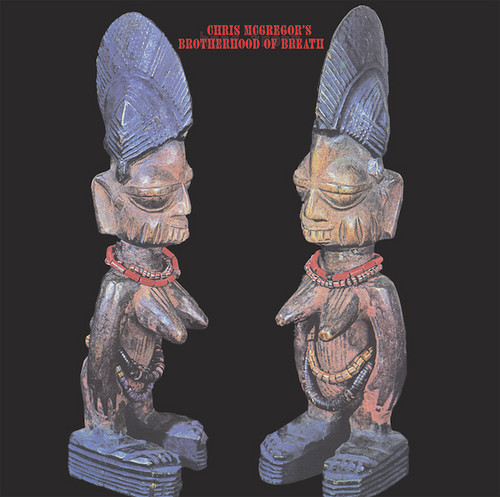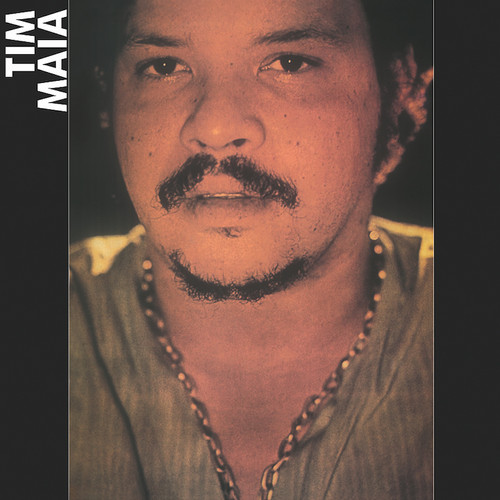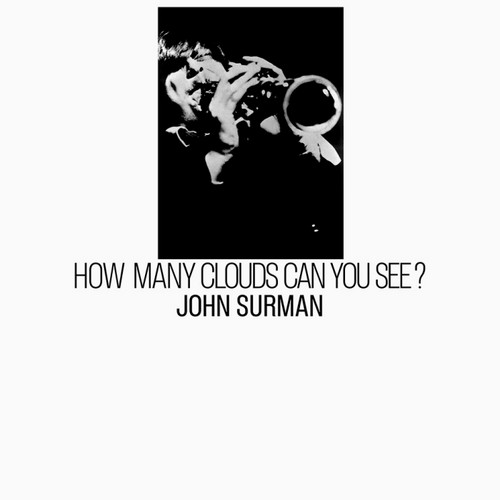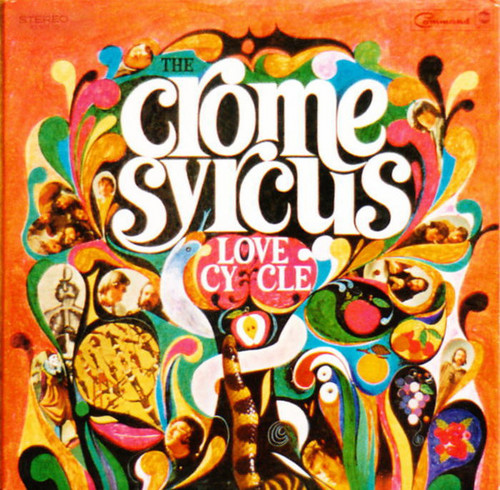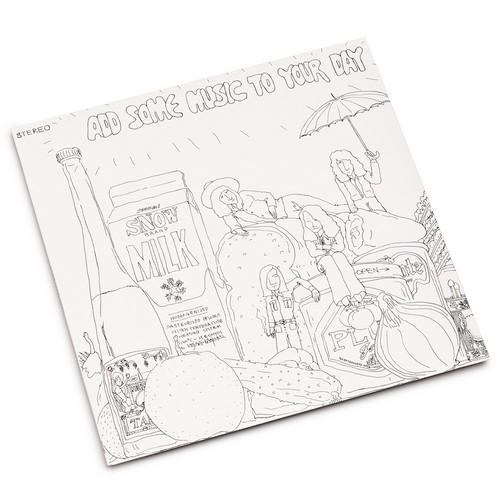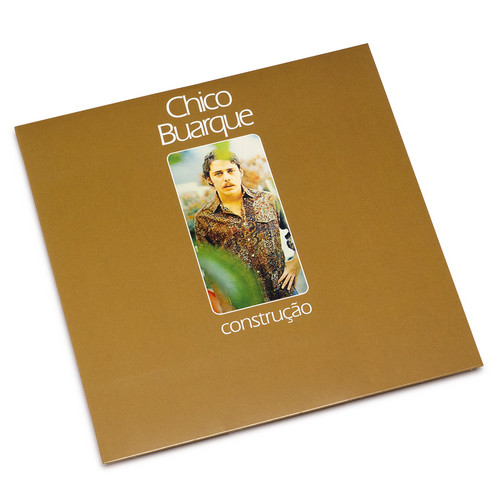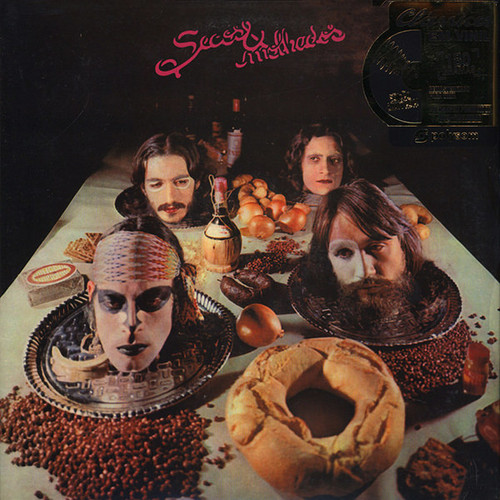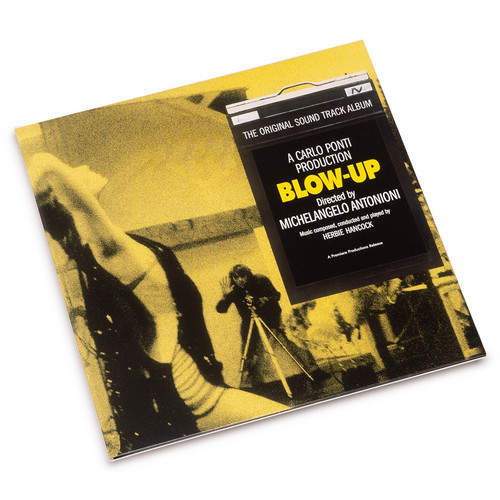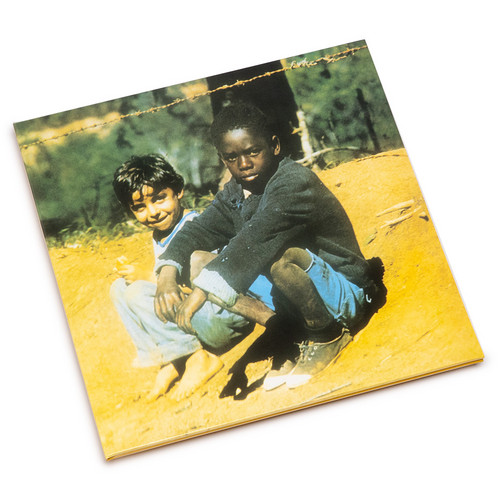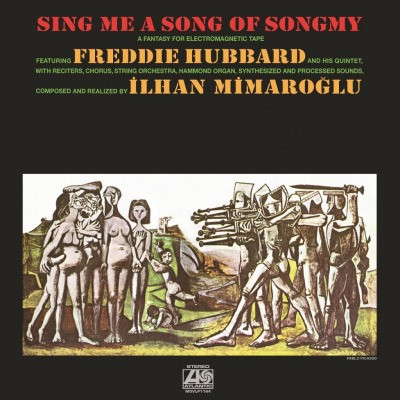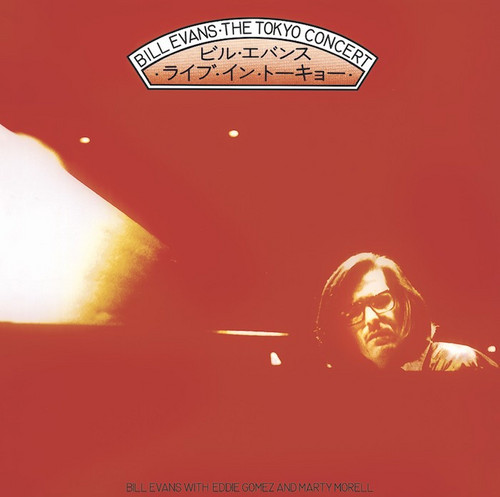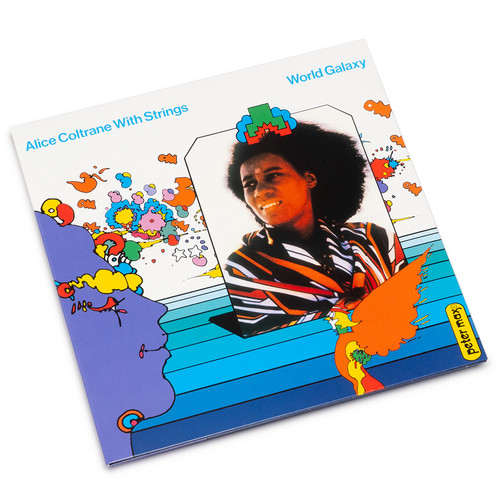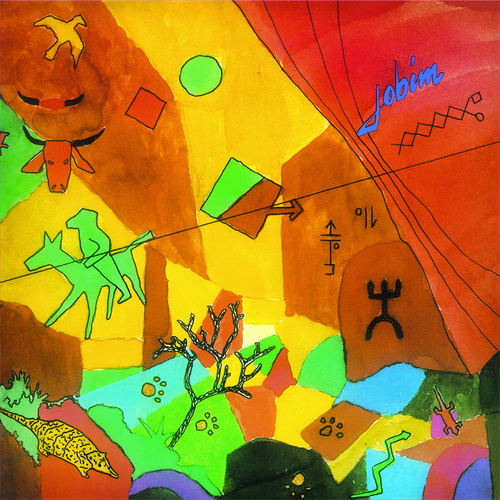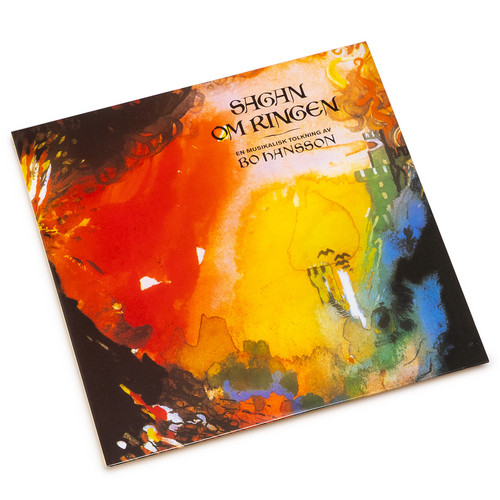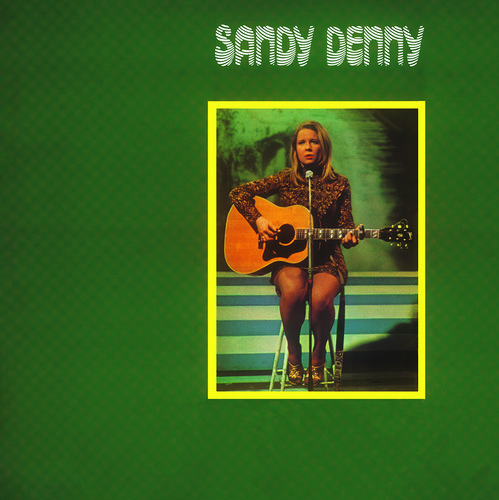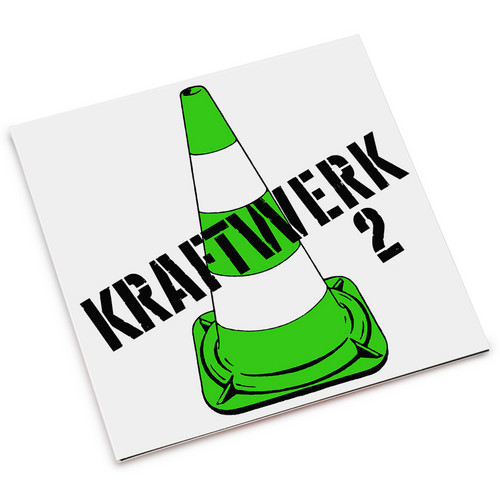★Endless Happiness
Happy Trails
2025 stock Reissue for the 1969 live album for Quicksilver Messenger Service, Happy Trails, recorded live in 1968 at the Fillmore in San Francisco.
Greek Variations & Other Aegean Exercises
*2025 much needed repress!!!* Recorded in '69, Greek Variations & Other Aegean Exercises is irresistible on two counts. First, for its daringly conceived and brilliantly performed music, inspired by Greek folk songs and instrumental textures and deep enough to reveal all its treasures only after many repeated listenings. Second, for being recorded at the moment when the Don Rendell/Ian Carr Quintet, a major force in British straight-ahead jazz since '62, had broken up and Carr's equally influent…
Ralf & Florian
*2025 reissue* Ralf and Florian (original German title: Ralf und Florian) is the third studio album by the German electronic band Kraftwerk. It was released in October 1973 and it saw the group moving toward their signature electronic sound. This work introduces greater cleanliness in the sounds and intensifies the use of electronic instrumentation, namely synths (Mini Moog, the EMS AKS and Farfisa), drum machines and, for the first time, a prototype vocoder. The formation thus approaches the st…
Chris McGregor's Brotherhood Of Breath
*2025 reissue* Chris McGregor's Brotherhood of Breath is the debut album by South African pianist and composer Chris McGregor and his English-South African big band established in the late-1960s called “The Brotherhood of Breath”. The music of this album reflects the influences of both jazz and traditional African music. Indeed, it has been recognized as one of the defining recordings of ethno-jazz.
Tim Maia 1970
*2025 reissue* This is the first full-length LP by the famous Brazilian musician and songwriter Sebastião "Tim" Rodrigues Maia, known for his iconoclastic, ironic, outspoken, and humorous musical style. This album includes the classics "Azul da Cor do Mar", "Coroné Antônio Bento", and "Primavera", which topped the charts for 24 weeks in Rio de Janeiro.
How Many Clouds Can You See?
How Many Clouds Can You See? is the second album by English saxophonist John Surman featuring Alto Saxophone – Mike Osborne; Baritone Saxophone, Flute – John Warren; Baritone Saxophone, Soprano Saxophone, Bass Clarinet – John Surman; Bass – Barre Phillips, Harry Miller; Drums – Alan Jackson, Tony Oxley; Piano – John Taylor; Tenor Saxophone, Flute – Alan Skidmore; Trombone – Chris Pyne, Malcolm Griffiths; Trumpet – Dave Holdsworth; Trumpet, Flugelhorn – Harold Beckett; Tuba – George Smith. John …
Love Cycle
This psychedelic nugget wrapped within a lovely hippie album covers offers to an interested listener both conventional San Francisco psych pop rock, and also experimental material, proving that they were among the rock artists searching the boundaries of their art and style. The composition is interesting and quite innovative within the 1960's American garage scene.
C.Q.
The Outsiders' final LP is one of the finer unsung psychedelic records of the late '60s. Heavy echoes of Syd Barrett-era Pink Floyd, Hendrix, and psychedelic-era Pretty Things, with adroit shifts from crunching rock and soft, almost folky passages to spacy phase shift bits and just plain dementia. The album has an ominous and creepy, but rocking, ambience that still cuts deep.
Add Some Music To Your Day
The reissue of Tatsuro Yamashita's Add Some Music To Your Day marks a significant moment in music history, resurrecting a rare gem from 1972 for contemporary audiences to enjoy. With only 100 copies originally produced, this analog LP offers a unique opportunity to experience Yamashita's early musical journey.
Construcao
Construção (Portuguese for 'Construction') is the eighth studio album by Brazilian singer-songwriter Chico Buarque, released in December 1971. It was composed in periods between Buarque's exile in Italy and his return to Brazil. Lyrically, the album is loaded with criticisms of the Brazilian military dictatorship, especially with regard to the censorship imposed by the government at the time. It is widely regarded by music critics as one of the greatest Brazilian albums of all time.
Secos & Molhados (1973) Lp
Secos & Molhados is the debut album of the group of the same name, released in August 1973. The album includes poetry works of authors such as Vinícius de Moraes, Manuel Bandeira and João Apolinário, and dances and songs from Portuguese folklore and Brazilian traditions. The album, as well as the band itself, emerged in the midst of a time of censorship and military dictatorship in Brazil, inspiring the band to portray themes such as freedom of expression, racism and war as a form of protest. It…
Blow-Up (The Original Sound Track Album)
Blow-Up is a soundtrack album by Herbie Hancock featuring music composed for Michelangelo Antonioni's cult film Blow-Up, released in 1966. Musically the songs evoke the ambience of swinging Sixties' London with grooves that create effective bluesy Jazz moods on the slow pieces, and funky ones on the up-tempo tracks. The album features performances by Hancock on keys, Freddie Hubbard and Joe Newman on trumpet, Phil Woods and Joe Henderson on sax, Ron Carter on bass and Jack DeJohnette on drums. R…
Clube Da Esquina
Clube da Esquina is a 1972 double album by the Brazilian music artists collective Clube da Esquina, credited to Milton Nascimento and Lô Borges. Considered one of the greatest Brazilian albums and an important record in the history of Brazilian music, it features arrangements by Eumir Deodato and Wagner Tiso, and conductions by Paulo Moura. The album garnered high attention for its engaged compositions and miscellany of sounds. Indeed, the LP was considered in the list of the Brazilian version o…
Sing Me A Song Of Songmy, A Fantasy For Electromagnetic Tape
Big tip! Sing Me a Song of Songmy is an album-length composition by avant-garde Turkish composer İlhan Mimaroğlu, released in 1971. Principal performers include jazz trumpeter Freddie Hubbard and Mimaroğlu himself. The piece includes a chorus, strings, recitations of poems by Fazil Husnu Daglarca and other texts, organists and tape-based musique concrète, as well as Hubbard's jazz quintet. It is considered as one of Hubbard's most experimental albums.
The Tokyo Concert
The Bill Evans Trio's 1973 concert in Tokyo was his first recording for Fantasy and it produced yet another Grammy-nomination for the presentation. With bassist Eddie Gomez and drummer Marty Morell, this LP mixes offbeat songs with overlooked gems, familiar standards, and surprisingly, only one Evans composition, the demanding "T.T.T.T. (Twelve Tone Tune Two)”. The Tokyo concert reveals the trio functioning at a high level, with each member by this time able to anticipate whatever direction the …
World Galaxy
World Galaxy is the sixth solo album by Alice Coltrane recorded in November 1971 in New York City, and released in 1972 by Impulse! Records. On the album, Coltrane appears on piano, organ, harp, tamboura, and percussion, and is joined by saxophonist Frank Lowe, bassist Reggie Workman, drummer Ben Riley, timpanist Elayne Jones, and a string ensemble led by David Sackson. Violinist Leroy Jenkins also appears on soloist on one track, and Swami Satchidananda provides narration. World Galaxy features…
Jobim
Jobim is the eighth studio album by Antônio Carlos Jobim recorded on December 1972 at New York City. Though this is one of the more obscure Jobim albums, it did introduce what some believe is Jobim's masterpiece, the hypnotically revolving song "Aguas de Março" (heard here in Portuguese and English versions).
Sagan Om Ringen
One of the most famous artists that came to light from the Swedish underground scene is the keyboardist Bo Hansson. His album "Lord of the Rings" inspired by the book of the same name remains a staple for all the freaks of the seventies and was internationally successful. "Lord Of The Rings" or "Sagam Om Ringen" remains a pre new age masterpiece of instrumental music for the mind, with splendid moog and organ releases, which underline Hansson's jazz origin, for four years and only until the firs…
It's Sandy Denny
It's Sandy Denny is a compilation album, issued in 1970. It consists of songs Sandy Denny recorded for Saga Records in 1967, and which were initially released on two separate albums: “Alex Campbell and his Friends” and “Sandy and Johnny”.
Kraftwerk 2
Kraftwerk 2 is the second studio album by German electronic band Kraftwerk, entirely written and performed by founding Kraftwerk members Ralf Hütter and Florian Schneider in late 1971 and released in January 1972. Perhaps the least characteristic album of their output, it features no synthesizers, the instrumentation being largely electric guitar, bass guitar, flute and violin. On the second side, the more rock-oriented origins of the group still cling on, mostly without any percussion whatsoeve…
